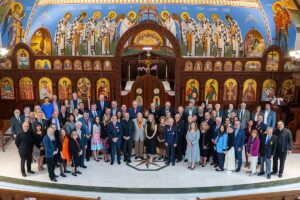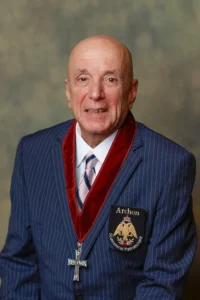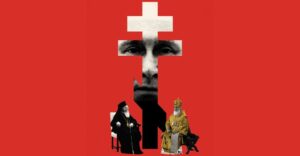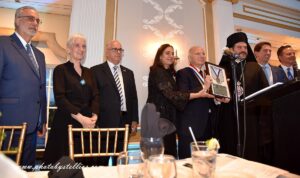
Released by the Bureau of Democracy, Human Rights, and Labor
Turkey
There are several other religious groups, mostly concentrated in Istanbul and other large cities. While exact membership figures are not available, these religious groups include approximately 65,000 Armenian Orthodox Christians, 23,000 Jews, and fewer than 2,500 Greek Orthodox Christians. The Government interprets the 1923 Lausanne Treaty as granting special legal minority status exclusively to these three groups, although the treaty text refers broadly to “non-Muslim minorities” without listing specific groups. However, this recognition does not extend to the religious leadership organs; for example, the Ecumenical and Armenian Patriarchates continue to seek recognition of their legal status.
The authorities continue to monitor the activities of Eastern Orthodox churches but generally do not interfere with their activities. The Government does not recognize the ecumenical status of the Greek Orthodox Patriarch, acknowledging him only as the head of the country’s dwindling Greek Orthodox community. High-level government leaders often assert publicly that use of the term “ecumenical” in reference to the Patriarch violates the 1923 Lausanne Treaty. However, government officials privately acknowledge that Lausanne does not address the issue.
As a result, the Government has long maintained that only citizens of the country can be members of the Church’s Holy Synod and participate in Patriarchal elections. Members of the Greek Orthodox community said these restrictions threaten the survival of the Ecumenical Patriarchate in Istanbul, because, with fewer than 2,500 Greek Orthodox left in the country, the community is becoming too small to maintain the institution.
In March 2004, Ecumenical Patriarch Bartholomew I appointed six non-Turkish-citizen metropolitans to the Holy Synod, representing the first time in the 80-year history of the country that noncitizens had been appointed to the body. Government officials said they were conducting a legal analysis of the appointments.
The Ecumenical Patriarchate in Istanbul continues to seek to reopen the Halki seminary on the island of Heybeli in the Sea of Marmara. The Government closed the seminary in 1971, when the State nationalized all private institutions of higher learning. Under existing restrictions, religious communities other than Sunni Muslims cannot legally train new clergy in the country for eventual leadership. Coreligionists from outside the country have been permitted to assume leadership positions in some cases, but in general all religious community leaders, including Patriarchs and Chief Rabbis, must be citizens.
In November 2004, the High Court of Appeals upheld the Vakiflar’s February 2004 expropriation of an orphanage on the Prince’s Islands that had belonged to the Ecumenical Patriarchate. In April, the Patriarchate filed an appeal with the European Court of Human Rights.
In September 2004, an estimated 1,000 protestors gathered outside the Ecumenical Patriarchate in Istanbul and burned an effigy of Ecumenical Patriarch Bartholomew I. The protest was organized by the youth wing of the Nationalist Movement Party, whose leaders accused the Patriarch of interfering in internal politics by commenting on religious reform and the country’s EU candidacy. In October 2004, unknown persons threw a homemade bomb over the wall of the Patriarchate; the bomb blew out several windows and damaged the roof of the cathedral. Police provided protection for the Christian religious leaders following these incidents.
The U.S. Government discusses religious freedom issues with the Government as part of its overall policy to promote human rights. The U.S. Ambassador and other Mission officials, including staff of the U.S. Consulate General in Istanbul and the U.S. Consulate in Adana, enjoy close relations with the Muslim majority and other religious groups. The U.S. Embassy continues to urge the Government to enable the reopening of the Halki seminary on Heybeli Island. In December 2004, the Archons of the Order of St. Andrew, an American group that actively supports the Ecumenical Patriarchate, visited Istanbul and Ankara with the support of the Mission. The Ambassador accompanied the Archons to a meeting with Foreign Minister Abdullah Gul to encourage an agreement on the reopening of Halki and a resolution of the issue of properties seized by the Government from religious minority communities.
In June, President Bush met with Prime Minister Erdogan and discussed the importance of maintaining the tradition of religious freedom, including urging the reopening of Halki. (emphasis added)
Officially recognized religious minorities may operate schools under the supervision of the Ministry of Education. Such schools are required to appoint a Muslim as deputy principal; reportedly these deputies have more authority than their nominal supervisors. The curriculum of these schools includes Greek Orthodox, Armenian Orthodox, and Jewish instruction. In May 2004, the Education Ministry stated that children with “non-Muslim” mothers could attend minority schools; previously, only those with “non-Muslim” fathers were permitted.
A separate government agency, the General Directorate for Foundations (Vakiflar Genel Mudurlugu), regulates some activities of “non-Muslim” religious groups and their affiliated churches, monasteries, synagogues, and related religious property. There are 161 “minority foundations” recognized by the Vakiflar, including Greek Orthodox foundations with approximately 70 sites, Armenian Orthodox foundations with approximately 50 sites, and Jewish foundations with 20 sites, as well as Syrian Christian, Chaldean, Bulgarian Orthodox, Georgian, and Maronite foundations. The Vakiflar also regulates Muslim charitable religious foundations, including schools, hospitals, and orphanages.
In 1936, the Government required all foundations to declare their sources of income. In 1974, amid political tensions over Cyprus, the High Court of Appeals ruled that the minority foundations had no right to acquire properties beyond those listed in the 1936 declarations.
The Court’s ruling launched a process, continuing today, under which the State has seized control of properties acquired after 1936. The law also allows the State to expropriate properties in areas where the local “non-Muslim” population drops significantly. Minority religious groups, particularly the Greek and Armenian Orthodox communities, have lost numerous properties to the State in the past and continue to fight ongoing efforts by the State to expropriate properties.
The law allows the 161 religious minority foundations recognized by the Vakiflar to acquire property, and the Vakiflar has approved 340 applications by “non-Muslim” foundations to acquire legal ownership of properties. However, the legislation does not allow the communities to reclaim the hundreds of properties affiliated with foundations expropriated by the State over the years. Foundations have also been unable to acquire legal ownership of properties registered under names of third parties, including properties registered under the names of saints or archangels, during periods when foundations could not own property in their own name.
The Government officially recognizes only three minority religious communities–Greek Orthodox Christians, Armenian Orthodox Christians, and Jews–although other non-Muslim communities exist. The level of religious observance varies throughout the country, in part due to the influence of secular traditions and official restrictions on religious expression in political and social life.
There are several other religious groups, mostly concentrated in Istanbul and other large cities. While exact membership figures are not available, these religious groups include approximately 65,000 Armenian Orthodox Christians, 23,000 Jews, and fewer than 2,500 Greek Orthodox Christians. The Government interprets the 1923 Lausanne Treaty as granting special legal minority status exclusively to these three groups, although the treaty text refers broadly to “non-Muslim minorities” without listing specific groups.







